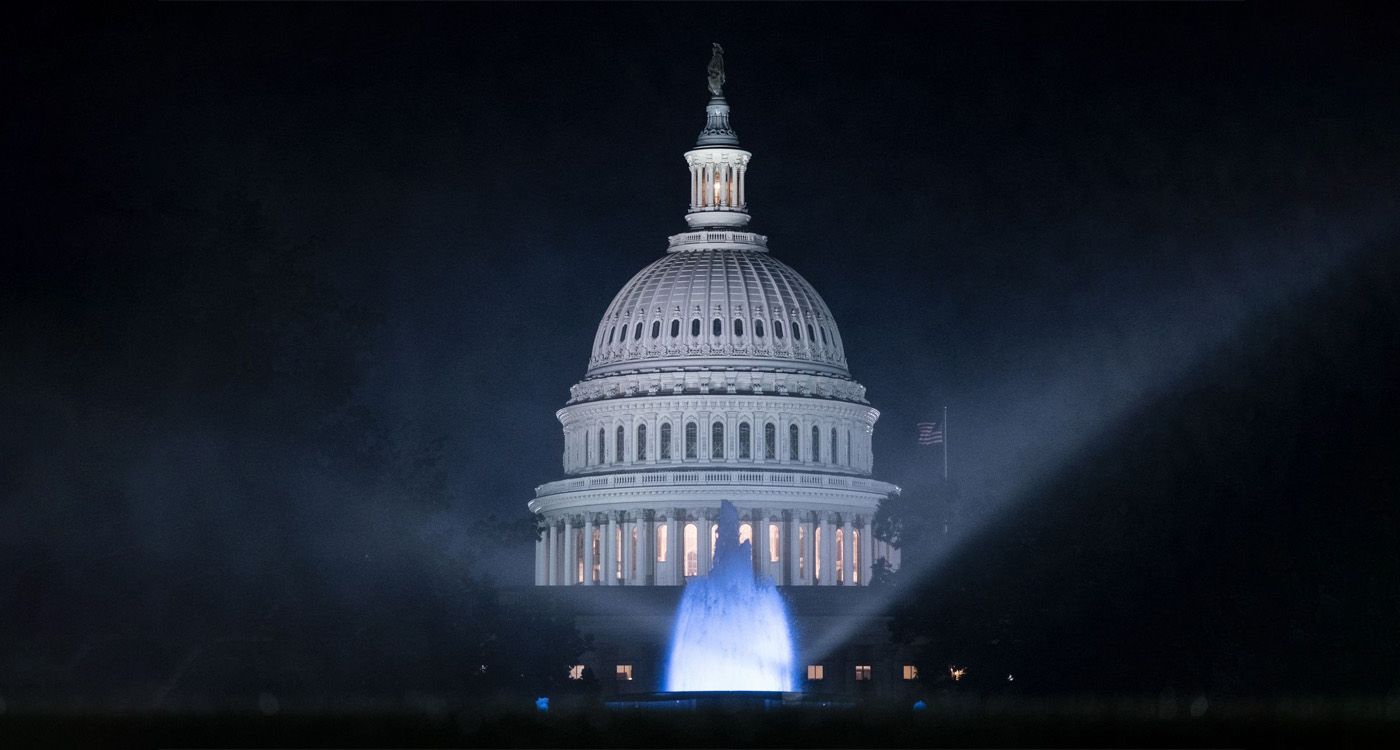- Home
- Middle East
- Big Beautiful Bill: America’s Divisive Tax Overhaul

©Al Drago / Getty Images North America / Getty Images via AFP
Passed by the US Senate last Tuesday by a majority of 51 votes to 50, thanks to the decisive vote of Vice President J.D. Vance, the One Big Beautiful Bill Act (OBBBA), nicknamed the “Big Beautiful Bill” (BBB), is currently the most ambitious and polarizing budget bill championed by Donald Trump since his return to the political scene.
The bill currently exists in two distinct versions: the House version, adopted in May by a single vote, and the Senate version, now approved. What is it about?
Massive Tax Cuts
Designed as a direct response to Joe Biden’s tax policies and a reaffirmation of the 2017 Tax Cuts and Jobs Act, the BBB focuses on three key areas: extending and expanding tax cuts, reducing certain social spending and increasing defense and border security funding.
At its core lies a traditional conservative principle: cutting taxes—especially on businesses and earned income—is expected to stimulate investment, boost consumer spending and ultimately fuel economic growth.
The House version extends the 2017 tax cuts, expands deductions for charitable donations, eliminates taxes on tips and overtime pay and quadruples the cap on state and local tax deductions (the notorious “SALT deduction”) to $40,000 for certain households.
The Heritage Foundation estimates this last measure would primarily benefit taxpayers in high-tax states like California and New York and roughly cost $377 billion over ten years.
The Senate Version: A Bold Growth Strategy
The Senate’s version, urgently debated in late June 2025, strengthens the bill’s pro-growth focus.
It permanently enshrines a provision allowing businesses to immediately deduct the cost of purchasing machinery or investing in research from their taxes.
A temporary extension also broadens this deduction to cover certain industrial properties—factories, manufacturing plants, warehouses and similar facilities.
According to the Tax Foundation, these structural changes could increase US GDP by 1.1% over the long term, generating about $900 billion in additional tax revenue.
Deficits Without Tears
However, this optimism is tempered by the sizable deficits the bill would create. The Congressional Budget Office (CBO) estimates that the House version would increase the primary deficit (excluding interest) by $2.4 trillion over ten years, while the Senate version pushes that figure to $3.3 trillion.
Including interest, total costs exceed $4 trillion. In contrast, proposed budget cuts, mainly in social spending, amount to just $1.2 trillion, far less than the revenue losses caused by the tax cuts.
Economists warn of a possible crowding-out effect: by sharply expanding deficits, the BBB could drive up interest rates, making borrowing more costly for businesses and dampening private investment. The Treasury would have to issue more bonds, potentially diverting national savings from productive investments.
These fiscal imbalances have political ramifications. The House had set a fiscal framework requiring any tax cut exceeding $2.5 trillion to be offset by further spending reductions.
The Senate version, which exceeds this limit without proposing additional savings, violates this rule, provoking backlash from Republican budget hawks traditionally supportive of tax cuts.
Growing Tax Complexity
Complicating matters, the bill adds to tax code complexity. Unlike the 2017 reform which reduced loopholes in favor of lower rates, the BBB introduces over $500 billion in new or expanded tax credits, according to the Arnold Ventures think tank.
Among the most debated provisions are “Trump Accounts”—a new program creating investment accounts for children seeded with $1,000 in public funds—tax exemptions on tips, expanded deductions for seniors and targeted benefits for adoption, affordable housing, whale farming in Alaska and rum distillation in Puerto Rico.
Many of these measures are temporary, only lasting until 2028, masking their long-term costs.
Divided Public Opinion
The BBB faces strong social opposition. It tightens eligibility for Medicaid and food assistance (SNAP), potentially leaving 10.9 million Americans without health coverage, per the CBO, and millions more without food aid, per the Urban Institute.
Republicans argue these changes encourage work and reduce fraud. Democrats see them as a severe rollback of the social safety net.
Public opinion is sharply divided: a late-May Pew Research Center poll found 49% oppose the BBB, while 29% support it.
A slight majority (54%) believe it will harm the economy, and 55% think it primarily benefits the wealthy—an impression reinforced by the SALT reform which, though capped, mostly helps affluent households in Democratic-leaning states.
Politically, the bill crystallizes a clash between two economic philosophies: one focused on tax incentives, competitiveness and personal responsibility; the other on redistribution, public investment and social protection.
Read more




Comments